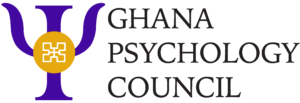Counsellors operating without license are charlatans – Ghana Psychology Council
 The Ghana Psychology Council (GPC) is warning the public of charlatans posing as counsellors, who are likely to put the lives of citizens in danger.
The Ghana Psychology Council (GPC) is warning the public of charlatans posing as counsellors, who are likely to put the lives of citizens in danger.
“Not everybody who poses as a counsellor qualifies to be one unless he or she is professionally trained and licensed to operate as such,” the Council said.
Dr Dinah Baah Odoom, the Registrar of the GPC, said for one to qualify as a professional counsellor, that person should have gone through at least six years of psychology education at the university level.
Counsellors, she said, applied psychology in their work, therefore, acquiring professional education was critical to understand human behaviour.
Dr Baah Odoom, speaking at the launch of a book titled: “Becoming a Skilled Helper: A Guide to Psychotherapy and Counselling Practice in Ghana,” in Kumasi, said counselling could be damaging to those in need if not handled by a professional.
Consequently, the GPC will not countenance any applied psychology-related activity in society likely to put the citizens’ lives in danger.
The Council is the only regulatory body mandated by the Health Professions Act 857, Section 5, to register and license all persons trained in psychology and applied psychology to practice legally in Ghana.
Touching on the book, which is a project of the Kwame Nkrumah University of Science and Technology (KNUST) Counselling Centre, Dr Odoom lauded the authors for the initiative to improve counselling practice in Ghana.
Authored by multiple experts and professionals, including clinical and counselling psychologists, the book primarily serves as a guide for mental health practitioners.
The foreword says, in part, that “the idea for the book came from an observation that a gap exists in the application of knowledge and clinical practice skills of counselling and psychotherapy interns working with adolescent and young adult groups.”
“The book is very useful as it indigenises western psychological concepts, making them meaningfully applicable in the Ghanaian context.”
It underscores certain pertinent issues that frequently happen during sessions and suggests how these can be handled ethically and professionally.
The book has 12 main chapters, discussing topics including; Counselling and Theoretical Orientations, Ethical Issues in Counselling, Stress Management and Resilience, Depression, Anxiety, Sexuality Issues in Counselling, and Working with Persons with Serious Mental Illnesses.
Professor Sister Frances Emily Owusu-Ansah, Head of the Department of Behavioural Sciences, KNUST, who edited the book, said the art of the science of psychotherapy must be culturally sensitive to be effective, because culture influenced mental health in various ways.
This relates to the formation of a disorder (psychogenic effect), its clinical manifestation (psycho-plastic effect) to the choice of appropriate coping response or health seeking behaviours (psycho-selective effect).
She said “imported” knowledge, skills and methods, therefore, could not be applied wholesale and without some adaptation to the needs of the people served.
“Respect for indigenous beliefs and practices, and a critical examination and indigenisation of foreign concepts and methods cannot be overemphasized,” Prof. Owusu-Ansah said.
“Hopefully, these are some of the issues brought to the fore in this book.”
Ms. Akua Afriyie Addae, a co-author, indicated that the book would help provide the right information on psychology and mental health to practitioners and the public as a whole.
Source: GNA
